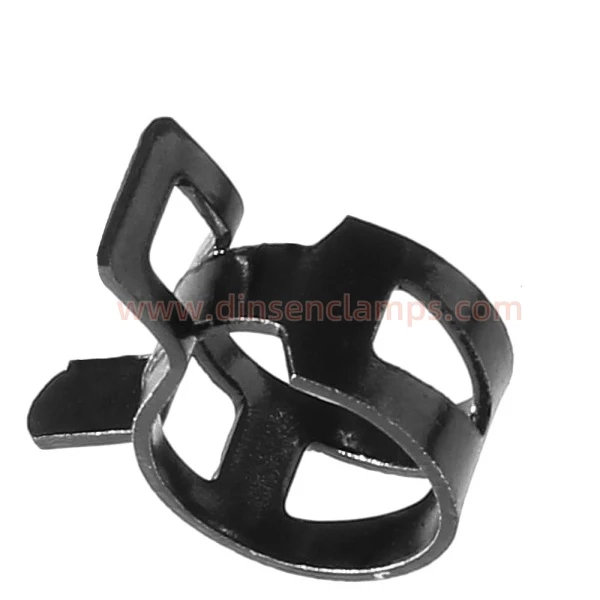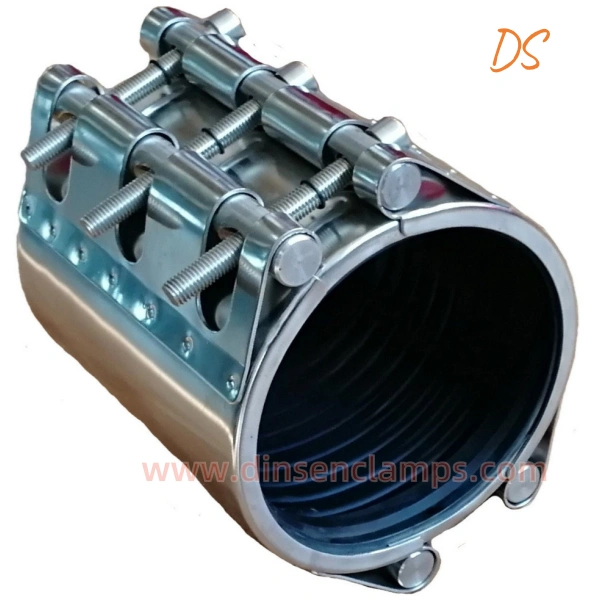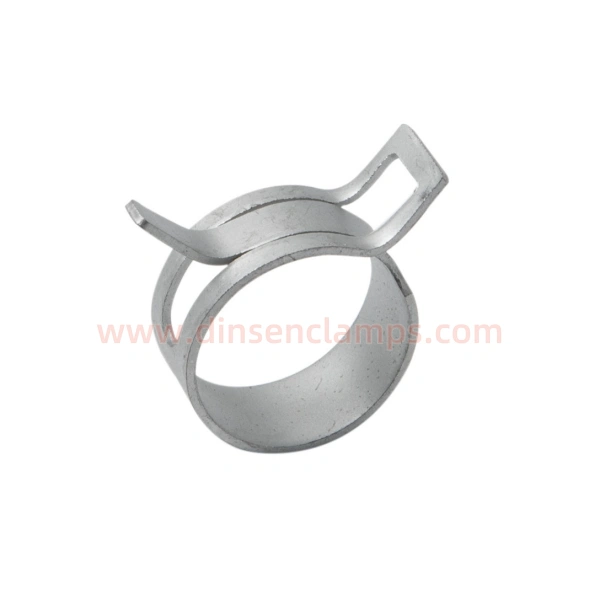Bad news! Trump raises some tariffs again!
Since taking office, US President Trump has frequently wielded the "tariff stick" and continuously raised tariffs on goods imported from other countries to the US. On March 9, US President Trump dropped another bombshell in an interview, saying that some tariffs may be raised again after April 2. Will this adjustment have an impact on hose clamps, pipe couplings, and new energy vehicles?
In the above interview, Trump downplayed the recent sharp fluctuations in the stock market caused by tariff adjustments, claiming that "we cannot pay too much attention to the performance of the stock market." This sounds a bit abnormal. You know, Trump has always regarded the performance of the stock market as an important indicator to measure his political achievements. In fact, there may be his own "little calculation" behind this. It is certain that stock market fluctuations are the "side effects" of the trade war, and Trump does not want such fluctuations to affect the implementation of his policies. Perhaps he hopes to make the market and investors believe by downplaying the impact of the stock market. After all, he has always claimed that his tariff policy is for the long-term interests of the United States, not short-term economic indicators. The point is that stock market fluctuations are just one of the many problems brought about by the trade war. Perhaps he is more worried about the long-term impact of the trade war on the US economy, such as rising inflation and increased corporate costs. These problems are more difficult to solve than stock market fluctuations and have a greater impact on the stability of the US economy.
As we all know, since 2018, Trump has been using "imposing tariffs on goods exported to the United States from other countries" as a powerful "economic weapon", trying to protect the domestic industries and jobs of the United States and suppress the industries of other countries by imposing tariffs. Trump had previously made it clear that he would rather not impose tariffs on Chinese goods. It can be seen that this weapon is very important to him, and it can be said to be his core "economic weapon". Since the beginning of the year, US President Trump has wielded the tariff stick, and goods from one country after another have been sent to the "tariff increase platform", and DINSEN's reaction has also gone from stimulation and despair to more stimulation and despair. He claimed that tariffs can bring trillions of dollars in revenue to the United States and bring manufacturing jobs back to the United States. However, is this really the case? In the short term, tariffs have indeed benefited some industries in the United States. For example, under the protection of tariffs, the prices of the steel and aluminum industries in the United States have risen and profits have increased, but this "local industry protection measure" has also brought side effects. Due to the rising prices of imported raw materials, the costs of manufacturing companies that rely on imported parts have increased significantly, resulting in production obstructions and even layoffs for some companies. Research by the Federal Reserve Board of the United States shows that the employment growth brought about by tariffs is minimal and cannot offset the negative impact of rising raw material costs and blocked exports. In the long run, Trump's tariff policy is more like "killing the chicken to get the eggs". Although tariff revenue has increased, the global trade environment has deteriorated and the US export market has also been hit. The trade war has not only failed to bring back manufacturing jobs, but has made the US job market more unstable. The point is that while the United States is imposing tariffs on goods exported to the United States from other countries, other countries are also imposing tariffs on US exports in retaliation or countermeasures, and US exporters will not feel good.
Trump's tariff policy, like a butterfly flapping its wings, has triggered a chain reaction in the global economy. For the United States itself, the tariff policy has brought not only economic problems, but also social contradictions. American consumers have increased their living costs due to rising prices of imported goods. In particular, low- and middle-income families have been hit harder. In addition, the trade war has damaged the United States' international image and challenged its position in the global trade system. For the global economy, the impact of the trade war is even more far-reaching. The international trade environment has deteriorated, the growth of global trade has slowed down, and the economies of many countries that rely on exports have been hit. GDP growth in countries such as Germany, Japan, and South Korea has slowed down due to the trade war. In addition, the trade war has also triggered fluctuations in global financial markets, increased uncertainty in the stock market and foreign exchange market, and frustrated investor confidence. Trump's tariff policy has always been a "barometer" of Sino-US trade relations. Since the outbreak of the trade war in 2018, the trade relations between China and the United States have been full of uncertainty. For China, the US tariff policy has brought huge challenges. Chinese export companies' orders will inevitably decrease due to high tariff costs, and profits may also decline, but Chinese exporters can still cope with challenges in many other ways, such as re-export trade, building factories in Southeast Asia, and expanding emerging markets. Although the United States has already encircled and blocked Chinese goods exported to the United States that have built factories in traditional trade countries, these measures still have a certain effect in the short term. Needless to say, sea freight will also be affected. If you need logistics services, please contact DINSEN
For the United States, the tariff policy does not seem to have achieved its expected results. Although the United States has tried to reduce its trade deficit with China through tariffs, the trade war has instead made American consumers and companies pay a higher price. In addition, the US tariff policy has also triggered China's countermeasures, further exacerbating the tension in the trade relations between the two countries. Trump's tariff policy seems to be for the economic interests of the United States, but in fact it has triggered a chain reaction in the global economy. He tried to protect American industries and jobs through tariffs, but in the end it cost the American economy and society. This also once again shows that in today's globalized world, there are no real winners in a trade war. Once it starts, both sides are doomed to lose. This time, Trump announced that he would raise some tariffs again after April 2, and the intensification of the tariff policy may bring another wave of heavy blows to the already overwhelmed global trade.
-
What are Hose Clamps Called?NewsAug.01,2025
-
What is the difference between single band pipe coupling and double band pipe coupling?NewsJul.31,2025
-
How Spring Clamp to InstallNewsJul.23,2025
-
What is Pipe Repair CouplingNewsJul.21,2025
-
How many types of clamps are there?NewsJun.18,2025
-
Casting ExpoNewsMay.22,2025
-
Features and Applications of Lightweight CouplingNewsMay.20,2025








